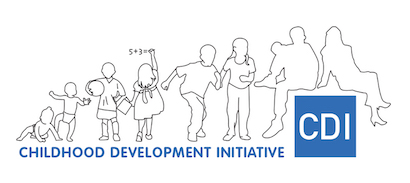A Day in the Life of…
Marie Daly, Senior Speech and Language Therapist, CDI
 What’s your job here, and what do you do on a regular day?
What’s your job here, and what do you do on a regular day?
I work as a Speech and Language Therapist with the ChitChat Programme in CDI.
On a regular day, I work in preschools and primary schools in Tallaght, delivering language programmes, providing specialised intervention for speech and language needs, training and supporting teachers and care staff, identifying needs and supporting onward referrals, and planning. There is also the inevitable administration of emails and phone calls, supporting information gathering for research, and making resources.
Walk us through a typical workday working for CDI from start to finish—a snapshot!
- Arrive at the setting by 8:30 am to catch up with teachers and managers, discuss ChitChat matters, address parent queries, and scan emails.
- Children start arriving at 9 am.
- Daily activities include classroom observations, conducting trackers and assessments, supporting children in classrooms, leading Talkboost groups, demonstrating strategies for teachers, and providing individualized care for speech and language difficulties.
- Meetings with parents cover programme details, information about their children’s communication needs, and guidance for home support.
- I also attend parent and toddler groups to support early language skills.
What do you find most fulfilling and rewarding?
Making a positive impact is immensely fulfilling for me. I view communication as a fundamental human right, with early language skills influencing academic success and future income. Communication fosters human connections, enabling understanding, friendships, and the expression of emotions and needs. Advocating for effective communication in all children is a passion of mine. Working with ChitChat under the CDI model allows me, as an SLT, to bring about tangible change. Hearing parents and teachers talk about young children having more confidence, advocating for themselves more clearly, and participating more in group activities is really rewarding. Seeing this for yourself in children is definitely the best part of the job!
What makes your job easier?
The support of such an experienced programme lead and another SLT makes my job much easier. If I ever require a solution, advice, a fresh perspective, or creative inspiration, they are always only a phone call or meeting away.
Having Early Years Educators, teachers, and preschool managers who understand the vital importance of language and early intervention also makes my job easier as they are eager to learn, support, and implement change.
Seeing children light up and be so excited to greet you when they see you arrive also makes every Monday morning brighter!
How do you juggle your tasks and stay on top of things?
Luckily, I enjoy being busy and having a to-do list. Within ChitChat, we are continuously reflecting and adapting our service delivery to maximise both service efficiency and, more importantly, to ensure the highest standards.
I like to visually divide our year into segments, which helps us stay on top of things as we have a primary focus for that term. Regular meetings for catching up and planning also help.
What are your common challenges, and how do you tackle them?
The common challenge is that the level of need really outweighs the level of available support in the community. Unfortunately, the prevalence of speech, language, and communication difficulties is so high, and there is a huge and long-running gap in service provision nationwide. Regarding tackling this, I take time to reflect on what I CAN do and what difference I CAN make.
Another challenge is a lack of understanding and awareness of what language and communication difficulties can look like (it’s often described as an ‘invisible disability’). I tackle this by using it as a motivation to advocate for language and communication in my daily life. One of my favourite regular occurrences is hearing a teacher or support worker say, “oh I never thought of it in that way, I’m going to try that”, or “That really made a difference to my communication with (that child)”.
What’s the best part of your job?
It is probably described above under my job’s most fulfilling/ rewarding part. I get to spend every day playing, being creative, and supporting and developing something I really believe in.
Any fun, heart-warming or unexpected moments you’ve had at work?
Working with children provides lots of heart-warming moments; I have been told that I am a princess, am regularly offered bites of sandwiches and melted crisps in sticky hands, and have had parents take time to come to thank me for supporting their child as they have noticed such a difference in them. Working with children is also always a humbling experience; I have also been asked what’s on my face (a spot…it was a spot on my face), and why the top of my hair is “a different colour” to the bottom (roots).
Any top tips or favourite quotes for our readers?
Lately, I’ve been reminding myself to stop bombarding with questions and listen more. When we overwhelm children (or anyone) with constant questions, it can cause stress and disrupt the interaction. Moreover, they miss the chance to learn something new. For instance, if your child already knows their colours, repeatedly asking “What colour is this? What colour is this?” adds little value.
Instead, try responding to what your child is focused on. If they’re looking out the window, you might say, “I see a huge truck,” and see how they respond. Another approach is sharing something about your day and observing their reaction. For instance, when picking them up from preschool, say, “I had a big sandwich for lunch” or “I went to the doctor’s today.” You might be surprised at how much more engaged they become in conversation! Allowing longer pauses gives children the time to process and formulate their responses.





